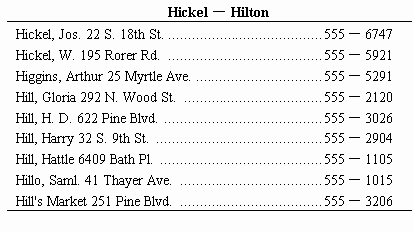题目内容
Read“My Problem” and answer questions 1 to 5.
My ProblemHi, my name is Effie!
I woke up on Monday morning at 7 o'clock. It took me 10 minutes to get dressed, 15 minutes to eat my break fast, 1 minute to brush my teeth and 9 minutes to walk to the bus stop. I had a feeling it was going to be a good day. At school, Mrs Finchley helped us make a graph of the birthdays of everyone in the class.
After that, we had to make a list of all the children in the class who were born in September.
The whole morning was going well until just bef ore lunch time. Mrs Finchley told us that it was Rebecca's birthday and her mum had made 24 cupcakes for the class. But there were 25 kids in my class!
Oh no! Who was going to work out how to share the cakes?
Suddenly, my head was filled with numbers whizzing around. Then, Casey raised his hand and said, “I don't like cupcakes.”
PROBLEM SOLVED!

1.On what day of the week did this story take place?
[ ]
2.What took Effie the longest time to do before she started school?
[ ]
A.getting dressed
B.eating breakfast
C.brushing her teeth
D.walking to the bus stop
3.How many children in the class were born in July?
[ ]
4.Who were the oldest children born in September?
[ ]
A.Sacha, Muhammed and Basma
B.Billy and Kim
C.Sacha, Billy and Basma
D.Muhammned and Kim
5.What was Effie's “problem”?
[ ]
A.She wanted it to be her birthday instead of Rebecca's.
B.She didn't like making a chart of the children's birthdays.
C.She wanted to have cupcakes for lunch.
D.She was worried about how to share the cupcakes.

 阅读快车系列答案
阅读快车系列答案
